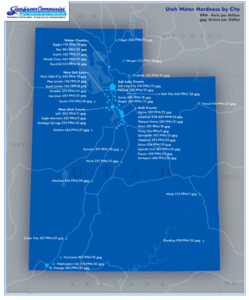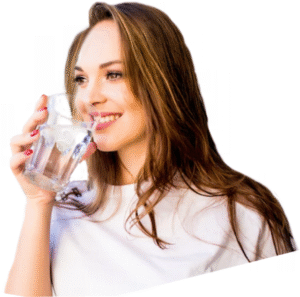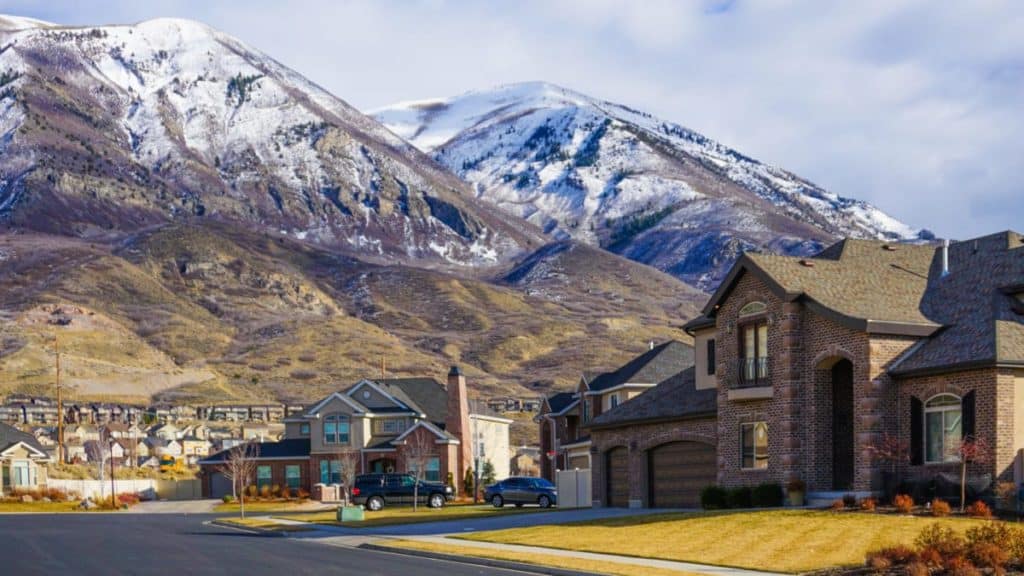Utah’s Water Quality: Hardness, Chlorine, and How to Fix It
Utah’s tap water often begins as fresh mountain snowmelt and aquifer water. But by the time it reaches our homes, many Utah families notice familiar problems: very hard water that leaves spots, plus a bleachy or earthy odor at times. These issues aren’t about safety – Utah officials confirm the water meets all health standards – but they can make showers, laundry and dishes frustrating. Understanding what causes hard, smelly water in Utah helps explain why whole-house water systems (softeners and filters) can dramatically improve daily life.
Hard Water: Utah’s Mineral-Rich Tap Water
Utah’s geology loads our water with calcium and magnesium, making it “very hard.” In fact, the USGS defines anything over 180 mg/L CaCO₃ as very hard water – and Utah’s water typically far exceeds that. State data show an average hardness around 298 mg/L. Many Utah cities are well above this: Salt Lake City’s water is about 327 mg/L (19.2 grains/gallon), and mountain towns like Park City reach 444 mg/L. Hard water isn’t dangerous to drink, but the minerals have “unpleasant effects” on homes – you need more soap and detergents and lime scale builds up on plumbing.

Common effects of hard water include:
- White spots and scale: Chalky buildup on faucets, showerheads, or dishes.
- Dull laundry and extra detergent use: Hard water minerals stay in fabrics, so clothes can look dingy or feel stiff, and you often use more soap.
- Dry or irritated skin and hair: Calcium and magnesium in hard water react with soaps, leaving a residue that can clog pores, cause dryness or acne, and dull hair.
Utah homeowners frequently notice these signs. Luckily, a softener will remove the minerals that cause this buildup. While Utah’s water is safe, its hardness means appliances and skin do feel the effects of all that mineral content.
Chlorine and Taste: Safe but Noticeable Treatment

Most Utah water systems add chlorine or chloramine to disinfect the water. Normally the levels are low, but sometimes taste or smell is obvious. After heavy spring rains, treatment plants in Weber Basin used extra chlorine to treat runoff, and residents complained of a strong “chlorine smell.” Layton City experienced the same when it switched from an aquifer to more chlorinated surface water. Officials were quick to reassure the public: it was only an aesthetic issue (smell/taste), not a health problem. As one Weber Basin manager put it, “there was never a health issue – just an aesthetics issue – taste and odor,” and the water still “meet[s] all state and federal drinking water standards.”
Overall, Utah’s drinking water meets EPA safety standards. While hard minerals or chlorine can make tap water taste or feel different, regulated contaminants (like lead, arsenic, or nitrates) are kept well below safe limits.
How Water Treatment Systems Help

If hard water or taste issues are bothering your family, home water treatment can be the solution. A common fix is a water softener, which trades the hard calcium/magnesium ions for sodium. This ion-exchange process eliminates the minerals that cause scale, so showers, sinks and appliances no longer get crusty buildup. After a softener, dishes rinse spot-free, soap lathers more fully, and laundry comes out brighter.
Another tool is a whole-house filter (often with activated carbon) to remove chlorine, organics and any sediment. This makes water smell and taste fresher. For drinking water, point-of-use filters or reverse-osmosis units can further purify the water (removing fluoride, heavy metals, and lingering tastes).
Benefits of treating Utah’s water include:
- No more spotting: Mineral stains on faucets, glassware and fixtures disappear.
- Cleaner skin and hair: Without hard minerals, soap rinses off completely – skin feels smoother and hair looks more vibrant.
- Longer appliance life: Soft water prevents scale buildup in heaters, dishwashers and plumbing.
- Lower soap bills: With softer water you use less soap and detergent.
In summary, Utah’s drinking water meets safety standards, but its hardness and treatment chemistry can affect daily life. Many local parents find that installing a water softener and/or filter makes a dramatic difference: no more white spots or itchy skin, and a fresher taste. By choosing the right water system for your home, you can fix the chronic issues that so many Utah families experience, while continuing to enjoy safe, regulated tap water.


